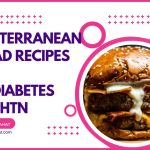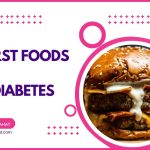Is Potato Good for Gastritis: Evidence from Research.
Our content is not intended nor recommended as a substitute for medical advice by your doctor. Use for informational purposes only.
Potatoes are good for gastritis: What is the evidence?
Potatoes are potentially good food for gastritis. Potatoes are mildly acidic (Their PH is between 5.4-5.9) (reference). Foods that can hurt your gastritis are often below the pH level of 4.6)
So, Potatoes don’t increase your stomach acidity, and it is not considered a trigger for gastritis (unless eaten in high quantities).
Potatoes reduce the inflammation of the stomach lining.
Potatoes have anti-oxidant and protective effects against gastritis. In addition, one study found that Potatoes contain a compound called (Potato peptides or Po-P).
The Potato peptides (Po-P) act as anti-oxidants. Anti-oxidant compounds help protect your body cells from damage, inflammation, and cancer transformation.
Research successfully isolated the Po-P from potatoes and administered it to rats with gastritis. Po-P compounds in potatoes reduced gastritis dramatically (reference).
The researcher concludes that potatoes can be good food for gastritis.
Potatoes may improve gastritis by reducing acid production.
Potatoes contain a group of sugar compounds called (Potato Galactan Polysaccharide (PGP)). The research found that Potato Galactan Polysaccharide (PGP) can inhibit stomach acid secretion (reference).
The anti-acid effect of potatoes works similarly to some famous stomach ulcer drugs called (proton pump inhibitors or PPIs). Nexium (Esomeprazole) and Prilosec (Omeprazole) are the most famous drugs.
The PGP in potatoes inhibits an enzyme called H+, K+-ATPase. The inhibition of this enzyme will reduce the amount of acid secreted into your stomach and improve gastritis.
However, The researcher isolated the substance (PGP), and the results were only experimental (done on rats with gastritis). Thus, we don’t know if potatoes retain these anti-acid effects when consumed by humans.
Also, we don’t know the effects of the processing and cooking of potatoes on such compounds. More research is needed.
Can Potatoes Kill H. pylori?
Many fruits and vegetables showed anti-h. Pylori activity in experimental studies. Scientists think the anti-h. The Pylori properties of fruits are due to their content of phenolic derivatives (reference).
Dr. Chatterjee and his research team found that phenolic compounds in the (berry) family of fruits can fight clarithromycin-resistant h. pylori strain (reference).
Potatoes contain Phenolic derivatives, possibly good for H. pylori-induced gastritis.
Main sources:
- Highbush blueberry (and its extract).
- Strawberry, raspberry, blackberry, and bilberry.
- Other fruits include apples, peaches, apricots, plums, cherries, pears, and grapes.
- Vegetables include yellow onion (the highest source), potatoes, rhubarb, red cabbage, etc.
- Some grains such as buckwheat, rye, oats, and barley.
- Cider, coffee, soy milk, regular milk, black and green tea are beverages.
NOTE: some of the phenol-containing foods are irritant to your stomach. Some foods can do more harm than good to gastritis. So, Consult your nutritionist or doctor before eating any trigger food. Fortunately, Potatoes are not considered a trigger for gastritis.
Raw potatoes vs. cooked potatoes for gastritis.
The cooking and processing of potatoes can reduce their anti-oxidative effects. For example, one study showed that cooking might decrease the activity of phenolic compounds inside potatoes (reference).
However, eating raw potatoes can also cause some digestive issues due to the high starch compounds of potatoes.
The key here is to experiment and work with your dietitian. Potatoes are not a magic food that health gastritis. However, it is at least not a trigger if consumed in moderation.
Can Potatoes trigger gastritis?
Although we lack sufficient evidence that potatoes can heal gastritis, we are sure that potatoes don’t cause gastritis.
Potatoes are not a trigger for gastritis. But you should note that potato additives such as butter species can trigger your gastritis. Be aware of the contents of your potato meal to avoid worsening your gastritis,
Food to eat with H. pylori-related gastritis.
H. pylori infection is responsible for the majority of cases of gastritis. The following list of foods can kill H. pylori naturally. Learn More.
INGREDIENT | FOOD SOURCE |
| Lactoferrin | – Milk (raw and pasteurized). – OTC supplements.f |
| Isothiocyanates. | – Saurkraut juice. – Broccoli. – Brussels sprouts. – Cabbage. – Japanese reddish cauliflower. – Watercress. |
| Phenolic derivatives. | – Blueberries (highbush blueberries). – Other fruits such as apples, peaches, apricots, and others. – Some Vegetables include yellow onion, Potatoes, Rhubarb, and red cabbage. – Some grains such as buckwheat, rye, and barley. – Some Beverages, include cedar, regular milk, soymilk, coffee, black tea, and green tea. |
| Honey | – Oaktree honey. – Manuka honey. |
| Oils & fatty acids. | – Blackcurrant seed oil. – Fish oil. – Carrot seed oil. – Grapefruit seed oil. |
| Probiotics -Lactobacillus GG. – Saccharomyces bouldardii | – The best is taking a probiotic supplement containing Lactobacillus GG and Saccharomyces bouldardii. – Milk, Kefir, yogurt, Saurkraut, and Kimchi – Mangosteen and lychee. |
Foods to avoid gastritis.
The following is the list of foods you should avoid with gastritis (whether it is H. pylori-induced or not).
Foods to avoid with Gastritis & H. Pylori. | |
| 1- Caffeine |
|
| 2- Citrus fruits. |
|
| 3- Fatty and fried foods |
|
| 4- spicy foods. |
|
| 5- Carbonated (soft) drinks. |
|
| 6- Alcohol. |
|
| 7- Tomatoes (& its products). |
|
| 8- Other Acidic foods |
|
- Evidence-based
- Written by a doctor.






